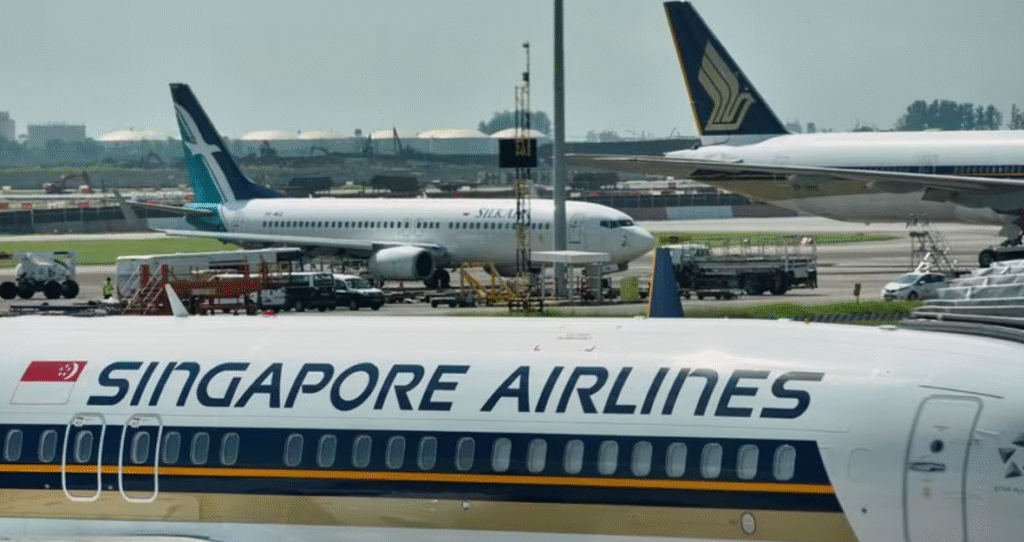Singapore Airlines Sees Surge in Flight Cancellations
Singapore Airlines, one of Asia’s most respected carriers, has announced a noticeable rise in cancelled flights. The disruptions are being caused by a mix of operational challenges and adverse weather conditions in the region. For many travelers, this has meant last-minute changes, unexpected delays, and the need to adjust travel plans. The situation highlights the difficulties airlines continue to face in balancing smooth operations with external factors that are often beyond their control.
The Scale of the Disruptions
The recent increase in flight cancellations has affected both regional and international routes. Passengers flying to popular destinations across Asia, Europe, and beyond have reported unexpected cancellations. While the airline has worked to rebook many travelers, the sheer number of disruptions has created stress for both customers and staff.
Industry observers note that cancellations are not unusual in aviation. However, a sustained surge—like the one seen in recent weeks—has drawn attention to the challenges airlines face in today’s environment.
Why Are Flights Being Cancelled?
There are two main reasons behind the cancellations:
-
Operational Challenges
Running a global airline requires careful coordination of aircraft, crew, and ground support. Even small delays can have a ripple effect, disrupting schedules. Singapore Airlines, like many carriers, has been managing tight schedules and limited spare capacity. When one part of the chain fails, cancellations become unavoidable. -
Adverse Weather
Weather plays a major role in aviation safety. Heavy rain, storms, or strong winds across Southeast Asia have led to difficult flying conditions. Safety remains the airline’s top priority, which means flights are sometimes cancelled rather than risk unsafe operations.
Impact on Travelers
For passengers, cancelled flights can cause major frustration. Many travelers have reported:
-
Missed business meetings and events.
-
Interrupted holiday plans.
-
Extra costs for hotel stays and rebooked flights.
Singapore Airlines has been offering rebooking options, refunds, and assistance. Still, the emotional and financial stress of last-minute changes has been felt strongly by those affected.
Airline’s Response
Singapore Airlines has acknowledged the issue and is working on solutions to minimize disruptions. The airline has:
-
Increased customer service support to handle rebooking requests faster.
-
Partnered with other airlines where possible to accommodate stranded passengers.
-
Communicated more openly about weather-related risks and operational limits.
The airline also stressed its commitment to passenger safety, saying that cancellations, while inconvenient, are sometimes the only responsible decision.
Wider Industry Challenges
Singapore Airlines is not alone in facing such problems. Airlines worldwide are grappling with similar challenges:
-
Weather Uncertainty: Climate change is making weather patterns less predictable, increasing the risk of sudden storms.
-
Operational Strain: Many airlines are operating with tight schedules after the pandemic, with less room for error.
-
Rising Demand: Travel demand has surged in 2025, putting pressure on airlines to keep flights on time despite limited resources.
These challenges have created a fragile environment where even small disruptions can lead to larger consequences.
How Passengers Can Prepare
For travelers planning to fly with Singapore Airlines or any major carrier, a few steps can help reduce stress if cancellations occur:
-
Check Flight Status Regularly: Use the airline’s app or website for the latest updates.
-
Book Flexible Tickets: Choose options that allow free changes or cancellations.
-
Consider Travel Insurance: This can help cover extra costs like hotels or meals during disruptions.
-
Arrive Early: Giving yourself time at the airport allows more options if flights are delayed or cancelled.
Long-Term Solutions
To prevent repeated disruptions, airlines may need to:
-
Invest in more spare aircraft and crew flexibility.
-
Strengthen communication systems to update passengers faster.
-
Work with airports and governments on better weather response strategies.
For Singapore Airlines, maintaining its reputation for reliability will depend on how effectively it adapts to these challenges.
The Reputation Factor
Singapore Airlines has long been seen as one of the world’s best carriers, known for quality service and reliability. While recent cancellations are disappointing for passengers, the airline’s transparent response and focus on safety may help preserve its reputation.
Industry experts suggest that most travelers understand that safety comes first, even when it means a cancelled flight. The key lies in how well the airline manages the aftermath and supports its customers.
Conclusion
The surge in flight cancellations at Singapore Airlines reflects the complex mix of operational challenges and unpredictable weather facing modern aviation. While the disruptions have caused stress for many passengers, the airline’s efforts to rebook flights and prioritize safety show its commitment to responsible service.
For the wider travel industry, these cancellations are a reminder of the fragile balance airlines must maintain in today’s fast-changing environment. Travelers may face more uncertainty in the years ahead, but with flexibility, clear communication, and investment in better systems, airlines like Singapore Airlines can continue to deliver safe and reliable journeys.


